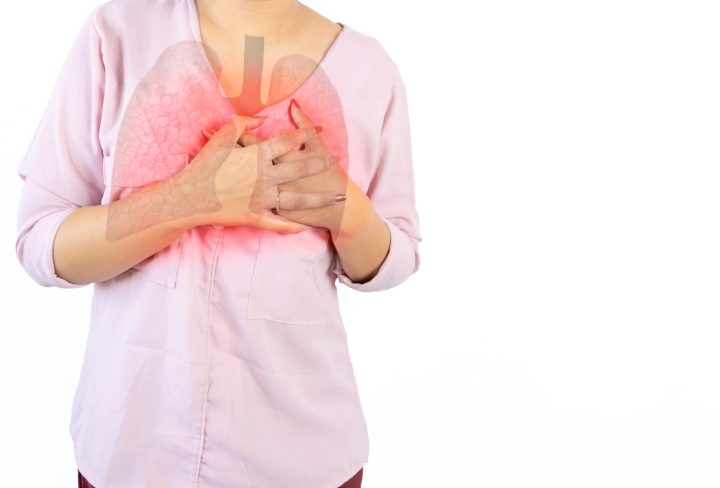A highly contagious bacterial infection that spreads through air droplets released into the air via coughs and sneezes.
It usually affects the lungs, but it can also affect other parts of the body.
Signs and Symptoms of Tuberculosis
- Persistent cough lasting more than 3 weeks
- Chest pain
- Coughing up blood or sputum
- Fatigue
- Unexplained weight loss
- Night sweats
- Chills and fever
- Loss of appetite
- Swelling of lymph nodes in the neck or armpits
Causes and Risk Factors of Tuberculosis
- Bacteria (Mycobacterium Tuberculosis)
- Infants and senile individuals
- Weakened immune system
- Diabetes
- Poor nutrition
- Smoking
TB can spread when a person with an active disease releases germs into the air through coughing, sneezing, talking, singing, or even laughing.
Diagnosis of Tuberculosis
- Skin Test (Clear indication for TB)
- Blood Test
- Chest X-ray
- CT scan
- Tests on Sputum and Lung Fluid
Treatment for Tuberculosis
Treatment for tuberculosis typically involves a combination of antibiotics taken for at least six months.
In some cases, additional medications may be prescribed to manage side effects or to treat drug-resistant forms of TB.
Prevention of Tuberculosis
- Get vaccinated
- Practice good hygiene (wash your hands regularly and cover your mouth when you cough or sneeze)
- Avoid close contact with people who have tuberculosis
- Practice proper nutrition and exercise to strengthen your immune system
- Avoid crowded places and practice social distancing
- Disinfect frequently touched surfaces
- Wear a face mask
Vaccination for Tuberculosis
The primary vaccination for tuberculosis is the Bacillus Calmette-Guerin (BCG) vaccine.
This vaccine is given as a single dose to children and adults at risk of exposure to tuberculosis. The BCG vaccine is not 100% effective, but it can reduce the risk of developing tuberculosis by up to 80%.
Myth and Fact: Tuberculosis
Myth: Tuberculosis occurs only in smokers.
Fact: TB is caused by the bacterium Mycobacterium tuberculosis. Smoking increases the risk of developing tuberculosis.
FAQ: Tuberculosis
Can tuberculosis be cured?
Yes, tuberculosis can be cured. Treatment usually involves taking multiple medications, such as antibiotics, for at least six months. Treatment can be successful, but it is important to finish the entire course of medication to eliminate the bacteria causing the infection completely.
FAQ: Tuberculosis
What is the recovery time for tuberculosis?
It can generally take anywhere between 6 to 24 months of treatment to fully recover from tuberculosis. It is important to follow your doctor’s instructions and take all prescribed medications as instructed during this time.


